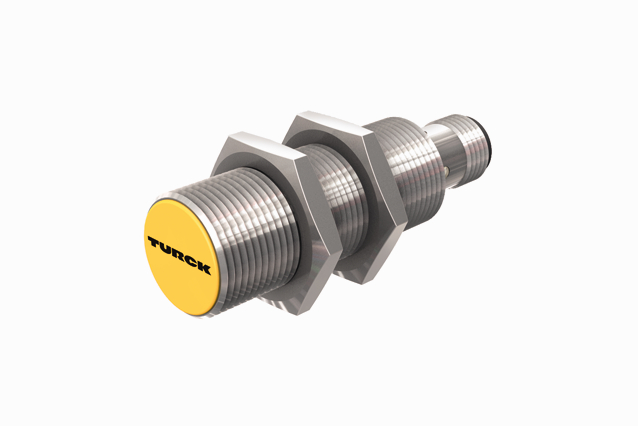Turck’s inductive sensors reliably detect carbon fiber composites
Patent-pending noncontact sensor series detects both carbon fibers and pressed carbon fiber parts with less susceptibility to contamination.

Photo Credit: Turck
Turck Inc. (Plymouth, Minn., U.S. and Mülheim, Germany) has developed what is claims to be the world’s first inductive sensors for detecting carbon fibers. The patent-pending noncontact sensor series enables manufacturers to detect workpiece positions in various stages of automated production to ensure quality, functionality and efficiency requirements are met. In particular, Turck’s sensors are able to detects both carbon fibers and pressed carbon fiber parts. This is particularly important in the automotive industry, the company notes, where high quality, and individually tailored solutions are expected, and where new materials, production technologies and levels of automation require automation solutions to be constantly updated.
Based on the company’s advanced uprox technology, the sensors offer maximum switching distances and maximum installation flexibility for manufacturers and suppliers of products such as cars, wind turbines or sporting equipment.
Compared to solutions used to date, says Turck, the inductive sensors are less susceptible to contamination than optical or capacitive sensors while also being more economical than ultrasonic sensors. They are also highly resilient, thanks to their IP68 protection class and maintain a wide application range between 0-100°C.
The sensors are now available in three initial designs: a threaded barrel version in M18 stainless steel housing with a rugged Duroplast front cap (BI7C) and rectangular versions with a height of either 20 mm (BI20C) or 40 mm (NI40C). Turck offers the devices as PNP changeover contacts with M12 connectors.
Related Content
-
TU Munich develops cuboidal conformable tanks using carbon fiber composites for increased hydrogen storage
Flat tank enabling standard platform for BEV and FCEV uses thermoplastic and thermoset composites, overwrapped skeleton design in pursuit of 25% more H2 storage.
-
Plant tour: Albany Engineered Composites, Rochester, N.H., U.S.
Efficient, high-quality, well-controlled composites manufacturing at volume is the mantra for this 3D weaving specialist.
-
Plant tour: Joby Aviation, Marina, Calif., U.S.
As the advanced air mobility market begins to take shape, market leader Joby Aviation works to industrialize composites manufacturing for its first-generation, composites-intensive, all-electric air taxi.












.jpg;maxWidth=300;quality=90)
